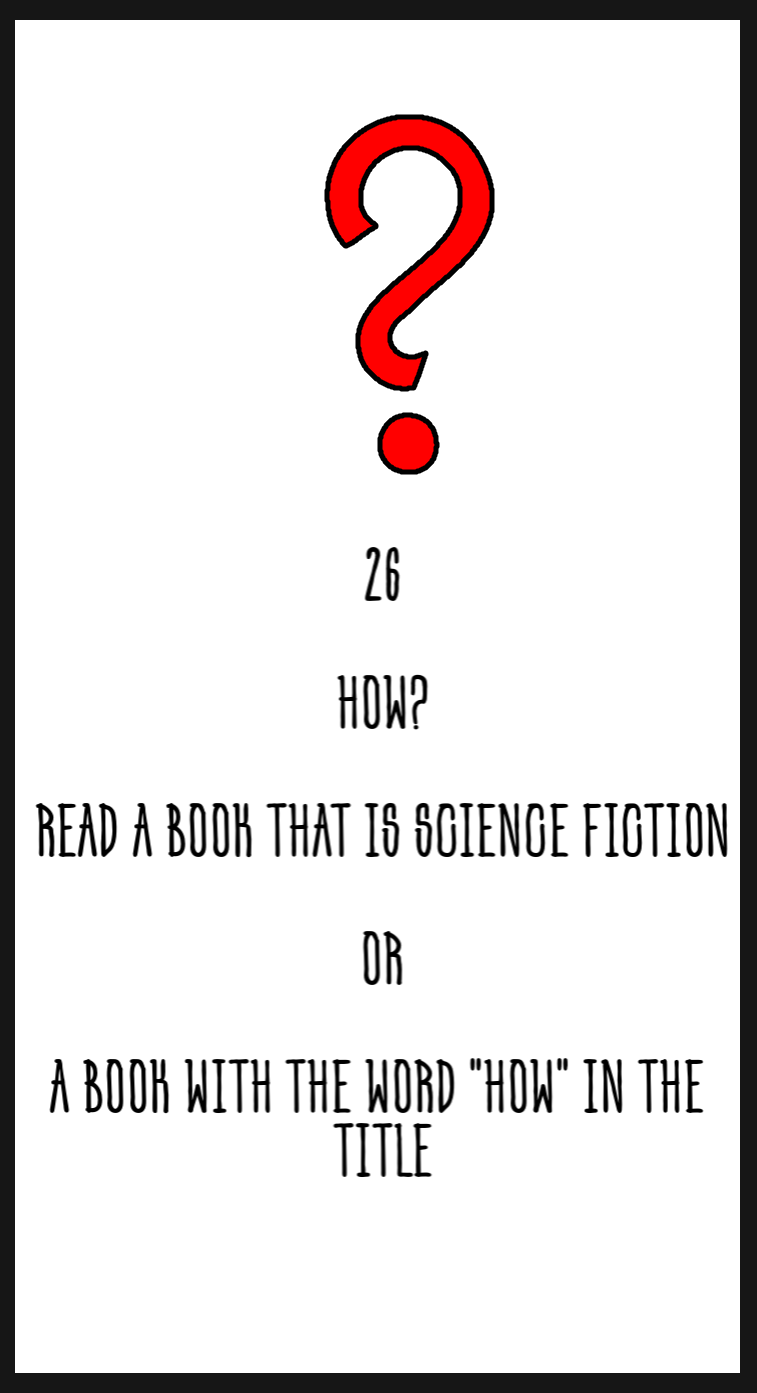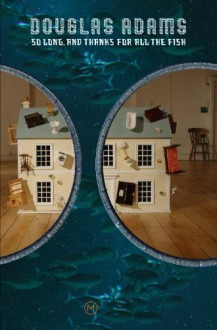
Forty-two is the answer to life, the universe and everything, in Douglas Adams’s masterpiece, a surreal and goofy romp through the universe.
Because I think that fans of HHGTTG will also enjoy my new book, Alpha Max: An Existential Romp through an Absurd Multiverse. Now, I’m not saying Alpha Max is as funny HHGTTG, because that’s a pretty high bar.
However, I have some earlier reviewers compare this work to that of Douglas Adams, Terry Pratchett and also Kurt Vonnegut. The winner will also receive a signed, first edition copy of my new book!


 I move to square 26: How? -- Read a book that is science fiction or a book with the word "how" in the title.
I move to square 26: How? -- Read a book that is science fiction or a book with the word "how" in the title.
This is an excellent excuse to listen to the Stephen Fry audio of Douglas Adams's Hitchhiker's Guide to the Galaxy that I recently acquired.
Length of equivalent print edition: 216 pages
=> + $3 upon completion.
My next roll -- since the first one were doubles -- also landed me on a question mark square, but this time one I haven't visited before:


square 34: When? -- Read a book that is time travel or historical fiction, or a book with the word "when" in the title.
I think the BL-opoly gods are telling me to finally get a move on and read C.J. Sansom's most recent Shardlake book, Tombland, which at this point has been sitting on my shelves for way too long. So, Tombland it is!
Length: 866 pages
=> + $10 upon completion.


This was my favourite book in the series - clever and hilarious, of course, but also fascinating on philosophical and scientific levels. Parallel universes and infinite Earths - well there were at the start of the novel anyway. One thing I did notice after five books, however, is the lack of character arcs.

Less happens in this, the fourth book of the Hitchhiker's trilogy, than in the preceding three, but it is funny and clever in true Adams' style. The story includes a new Earth and a love interest for Arthur Dent (one that sends them soaring into the clouds). Three bowls gifted by the missing dolphins, an inside-out house in California, the co-ordinates to God's final message, a grumpy rain god and angels in Scholl sandals provide the requisite whimsy and allow the reader it indulge in a much needed escape from reality. It's silly and fun (as you'd expect) but perhaps not quite at the level of other Adams novels. Suspense and conflict are absent, replaced by convenient coincidences that allow Arthur to sail gently through the story.